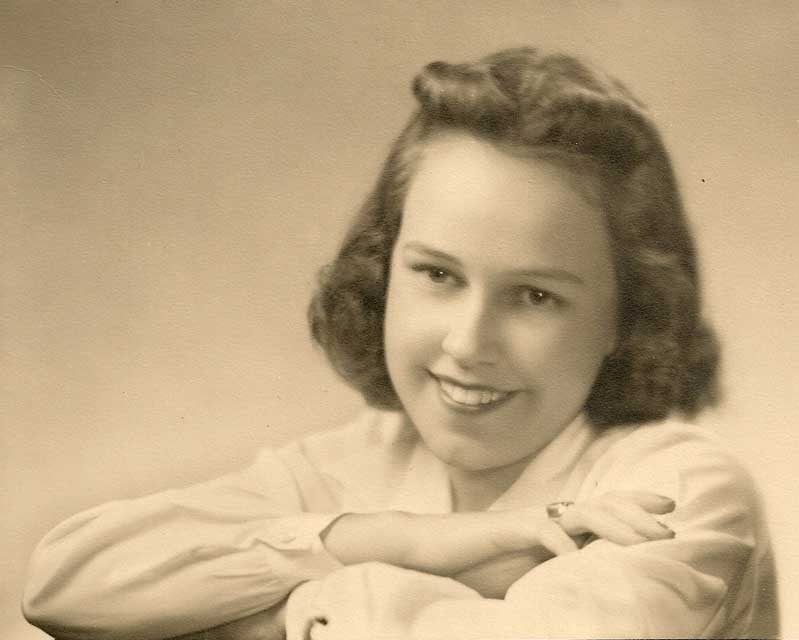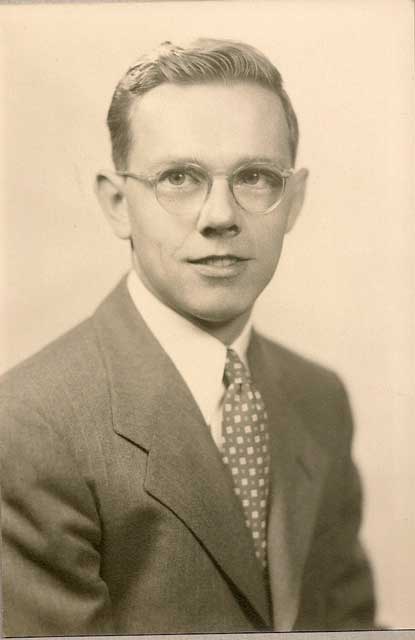

© 2021 Patricia Jean Patten Evans
All rights reserved
 |
Dutchie Darling . . . Love, Bob |
 |
| A Love Story © 2021 Patricia Jean Patten Evans All rights reserved |
| On his way back from visiting his grandmother in Nova Scotia, he had stopped to see Jean in Boston and then took the train back home to Trenton. While he was waiting to hear whether he would be accepted into the Armed Forces, he was working at the Pattern, Machine and Foundry, the company started and owned by Bob’s father. Wilbur H. Patten. At the time these letters were written, Bill and Bob Patten lived in the house, where Bob had grown up at 118 Fetter Ave. in Trenton. This was before the day of air conditioning, and he references how hot it is in a number of the letters. In several letters, he comments about how he hopes that Jean won’t mind the heat and might never want to live there. As I read this, I felt a sense of foreshadowing. In 1953, we moved from Massachusetts to Trenton, so that my father could go back to work for his father. It was not a wonderful experience. By that time, my grandfather had remarried and for whatever reasons, the relationship between my dad and my grandfather changed. After six very tough, unhappy years for us as a family, my dad took a job in northern New Jersey. Once he left the Pattern, Machine and Foundry, our relationship with our Patten grandfather was never close. The young man, Cliff, whom he references several times, is Cliff Duer, his best friend growing up. He and Cliff would remain friends until Cliff’s death in the 1970’s. At this time of his life, Bob was already a smoker, as was Jean. Bob smoked pipes and cigarettes, dying one day before his 65th birthday from lung cancer. His dad, Bill, also smoked. I remember them both smoking unfiltered Camels all my growing up years. Bob writes about going to Mrs. Foulds’ house for dinner. Mrs. Foulds was a good friend of his parents. I can remember my father taking us to meet her, when I was a child. She was a wonderful cook and loved my father as if he were her own son. Bob writes about Willard wanting to join the navy and go to sea. By this time, Willard, Jean’s only brother, was 16. He threatened to go to Canada and renounce his citizenship to join the Canadian armed forces. Finally, Bill Smith, Jean’s father, agreed to sign off and allow him to volunteer for the army. Willard lied about his age and was drafted. He became a paratrooper and was in and out of the service, wounded by the time he was 18. By this point, Bob has been away from Jean for over two weeks and he misses her a great deal. He continues to complain about the heat, but is happy to be getting letters on a regular basis. He heard from Uncle Sam and was inducted into the US Army on June 19, 1943. He had to report to Fort Dix for entry into the active forces on July 3, 1943. At this time, mail was delivered twice a day and once on Saturday. He also references ration books. During the war, many things were rationed. Each month every adult would get a book of stamps that could be used along with money to buy the things that were rationed, like gas, oil, sugar, butter, meat, shoes, etc. In one letter, he reminds her how to spell Patten. The more common spelling is Patton, but as he always told us when we were kids—ON is Irish, EN is Scottish. We are Scots. In these letters, he writes about two of his aunts. Elsie, his mother, had two sisters, Amanda, the oldest, and Lulu, the youngest. Amanda, called Nan, was his favorite aunt. She worked as a nanny for the Youngman family of New York. Sterling Youngman, Sr., was Lt Governor of New York and Ambassador to China. I have a Chinese vase, which was given to him as a gift, which he in turn gave to Auntie Nan. Nan used to visit us frequently when we lived in New Jersey. She would have Mr. Youngman’s chauffer drive her out to our house and just appear on the doorstep for a few days. Although my parents loved her dearly, they did wish she would call before arriving. Nan also used to bring my mother clothes. Young Mrs. Youngman and my mother were the same size. My mother was able to wear much nicer clothes for years than she could have afforded to buy. Auntie Nan died in the late 60’s of cirrhosis of the liver, and had never drunk a drop of alcohol in her life. Lulu , Aunt Lou as we called her, was married to George Murray and had one daughter, Janet. He refers to a number of their friends in these letters. The Lloyd he writes about was a friend of my mother’s and his fraternity brother. It was because of Lloyd that they met. |
| 04/12/1943 | 04/23/1943 |